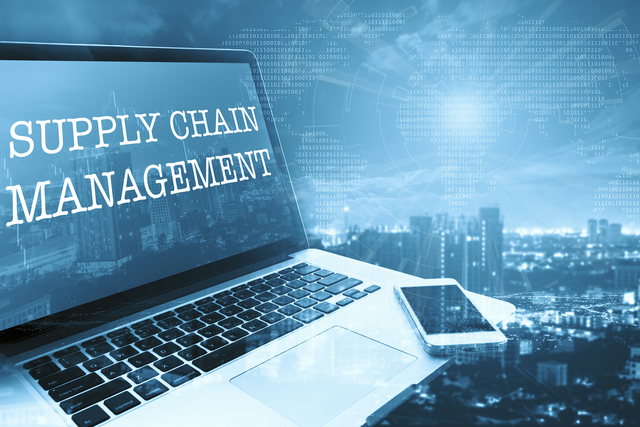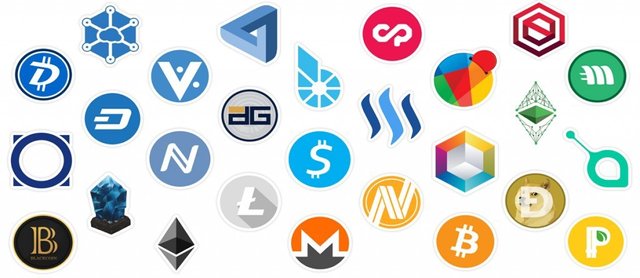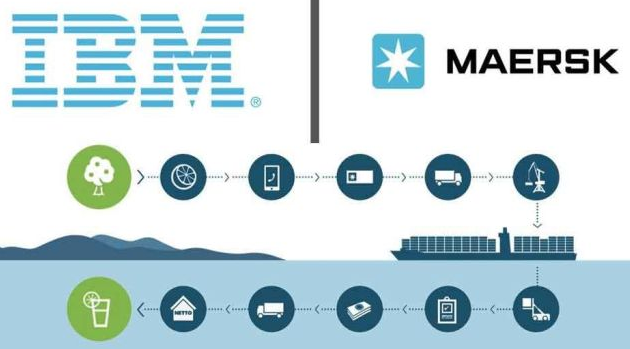Blockchain Applications in Supply Chain
Blockchain Applications in Supply Chain
Who said that blockchain works only in financial industries, specifically banking? Its technology provides numerous interesting solutions for other sectors, much to the delight of companies using them. Thus, in this article, we wish to stress out supply chain as something absolutely possible. And not only possible but recommended if transportation and production capacities are to be enhanced in these turbulent times.
What will you find here? Information on how to use blockchain in the supply chain, advantages, issues, and real-life applications.
Linking Blockchain and Supply Chain
If you thought that blockchain is all about tokens/coins, you could not be more wrong. The technology itself has many applications and bitcoins/altcoins are only one sphere of it. The ledger records, smart contracts, detailed transfer technology, security tools, and many other functions make the blockchain one of the most intriguing innovations of today.
Moreover, the technology is not in the clouds — it is already in the industry, used by many businesses as a solution to their complex problems. The best of it? It can be applied to a wide range of industries, from retail chains to diamond industries, all over the globe. You can pair it up with banking systems and your own BI if the need arises.
Different Industries — Different Needs
Let’s start with industries. Two different sectors cannot exactly have the same needs, no? However, the issues in the supply chain, in most cases, stay the same. Take a look at books distribution and confectionary companies. Both need producers, suppliers, middle companies, and audience of customers to purchase the product at the end of the day. Blockchain, with its technology, can help all of them by providing a set of services encored only for that specific industry.
Different blockchain thus has different solutions. Ethereum, for example, proposes smart contracts while Dash modes. Both offer ledger records that can secure both parties when conducting business. Additionally, transfer information can be constructed as to provide an accurate account of all transactions, deals, and parties involved. Some blockchain systems can offer a complete network of supply chain, where customers can directly purchase goods and have them delivered by using the token/coin as a result of blockchain technology, easily, safely, and cheaply.
Blockchain’s Interesting Applications
There are several aspects of blockchain that supply chain participants cannot ignore, especially now, when the business world faces rapid changes. We are talking about smart contracts, tokens/coins, and ledger records, of course.
Smart Contracts — What is better than an already-automated process of sending and receiving both information and funds? Add to that contract terms that need to be satisfied in order for the payment to be made and you have a sure way to secure your flawless transport of data and money. This is quite interesting for the supply chain, where numerous payments need to be made during the day. With a smart contract application, one can manage several transporters/producers with ease, just by setting the rules of the game through blockchain’s programmed smart contracts.
Tokens/Coins — Many corporations operate worldwide nowadays, with manufacturers, suppliers, and even customers spread around the globe. The use of single token/coin form the blockchain technology can speed up payments and keep fees and exchange rates very low. At the same time, making the money standardized under one cryptocurrency would do wonders for accounting and results measurement.
Ledger Records — Keeping up with bills, transported goods, and inventory level? Then blockchain offers a feature where all transfers are recorded. It might be seen as a simple accounting bookkeeping, but the truth is you can put any sort of information there with good programming skills. Thus, blockchain’s irreversible ledger records serve not just as a financial reporting tool, but as an inventory tracking system that can provide data regarding the inventory date it was shipped, value it had on that particular day, and to whom.
Apart from Benefits, What about Issues?
As with all things made by a human hand, blockchains are not perfect nor are their solutions. Supply chain dedicates itself to its innovative way of thinking, especially today where competition is fierce. Let us take a look on cryptocurrencies first. Coins have to be evaluated based on something, no matter if it is fiats or commodities. Due to huge fluctuations in the crypto market, the value of existent coins varies greatly on an hourly basis, rendering them useless for stability-hungry companies.
Next issue is trust, as all ledger records need to be recorded in a public book, meaning everyone can see it. Some companies would wish to hide their data even from their own suppliers, as these partners do not work only with the main company but with its competitors as well.
Lastly, there are issues with security, as blockchain systems are yet to develop a sound barrier form hackers and inner-circle scammers, who would love to take the info and tokens outside of the supply chain through theft.
Real World Implications
Even with all issues combined, there are numerous examples in the real world where blockchain has been implemented either partially o fully, depending on the industry needs. Here are some examples that our readers might find interesting.
IBM and Maersk blockchain solution (source: ibm.com)
Maersk and IBM made a joint venture through a blockchain technology by introducing an entire shipment system based on the blockchain network. The result? Over 100 companies joined in, streamlining the industry through freight forwarding and trade finance. The emphasis is on the end-to-end services, from manufacturers to end users using the pilot platform and blockchain as a mean of value transfer and evaluation of inventory.
De Beers, on the other hand, uses blockchain in its entirety as it tracks all shipments and payments using its own blockchain technology to track all shipments. The idea is to kick out blood diamonds completely by trading only with those suppliers that are willing to put all necessary information upfront and where all transactions are public.
Cloud Logistics uses a blockchain payment system in order to lower down costs related to the transfer of payments around the world. Fees in the crypto world are still a lot cheaper than using classical methods, such as banks and e-payment systems, the fact that Cloud Logistics knows very well.
Tomcar did not exactly implement the entire blockchain technology within its system, but the vehicles company does pay its suppliers — in bitcoin. Though, it would be worthy to mention that only 2% of accepting this payment method so far.
Bringing it All Together
As a conclusion, blockchain has a lot to offer and many companies already recognized its benefits. From smart contracts to coins being used for payment, blockchain offers a fast, easy and cheap way to get things done in the supply chain.
However, it is important to notice that the entire market is still in development. Current issues that plague supply chain may be a bit too big of a bite for cryptocurrencies to chew, especially concerning security. However, the potential is there and interested parties exist, which will push the digital communities to innovate further and provide solutions for problems that exist today.



Congratulations @cryptotruffle! You have completed the following achievement on the Steem blockchain and have been rewarded with new badge(s) :
Click on the badge to view your Board of Honor.
If you no longer want to receive notifications, reply to this comment with the word
STOPDo not miss the last post from @steemitboard: